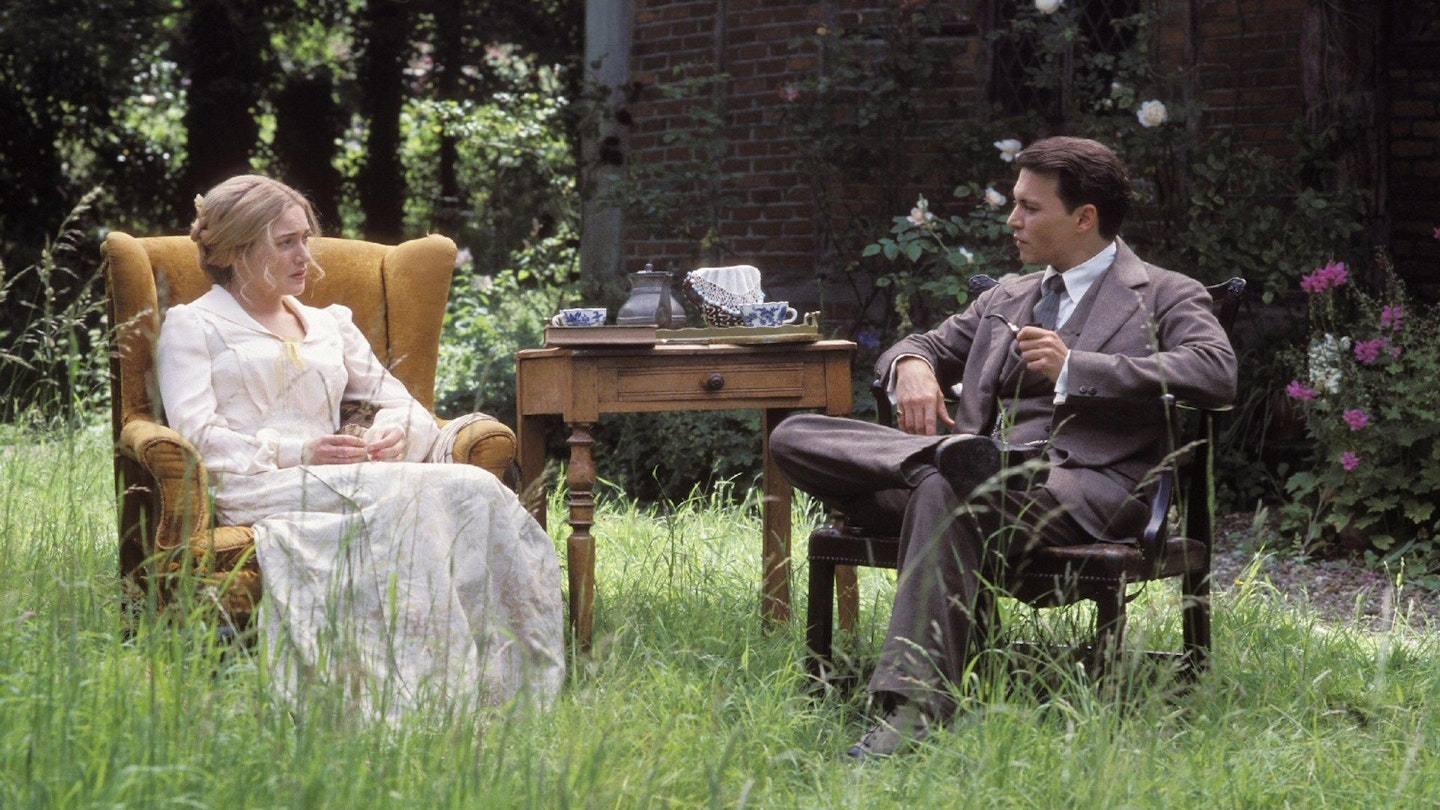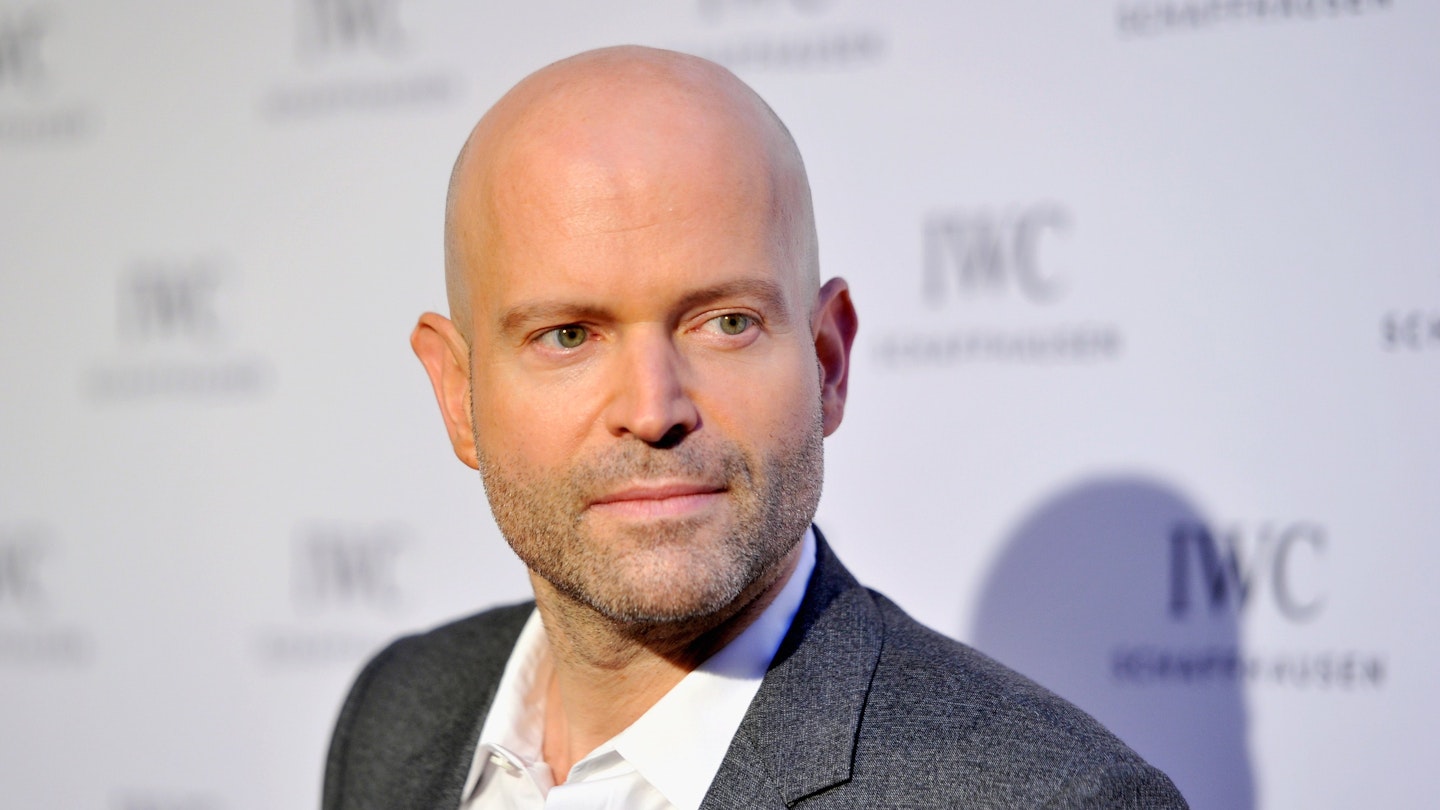Johnny Depp has never gotten around to putting away childish things. Instead he's spread them liberally across his career, delving into the farthest corners of the dressing-up box to portray everything from transvestite, to pirate, to scissor-handed boy. Which makes him not only a wow at fancy dress parties, but also the perfect choice to portray J. M. Barrie, creator of Peter Pan and eternal child himself.
Stuck in a functional marriage to a brittle social climber (Radha Mitchell) who wanders their darkened home like a widow in waiting, Depp's Barrie is less a tortured artist than a tethered fantasist, dimmed by the expectation of the theatrical world and awkward in the company of the fusty society types who frequent his plays. His chance meeting with Sylvia Llewelyn Davies (Kate Winslet) and her four sons unshackles not only Barrie's creativity as a writer, but also Marc Forster's own visual ingenuity.
The combination of the quaint Victorian setting and Barrie's fertile imagination allows Forster to conjure up a world where fantasy leaks into the everyday as fleeting moments – a tinkling bell here, a brandished hook there – thereby sowing the seeds of Pan. It's redolent of Peter Jackson's Heavenly Creatures, where even the mundane seems slightly askew, lending the entire film a lush, storybook look. Forster and cinematographer Roberto Schaefer frame everything with intricate beauty, be it Sylvia sighted through a hole in a newspaper, a camera darting fairy-like over an enthralled audience, or the hazy, painterly fantasy sequences.
Depp, seemingly unable to put a foot wrong performance-wise, is both playful and judicious as Barrie. Though the script bats him between melancholia and elation as his friendship with the Llewelyn Davies family inflicts its own joys and tragedies, Depp adds an endearing eccentricity that's all his own. It's hard not to detect the actor's barmy hand in a moment where he arrives at the children's house wearing an elaborately feathered American Indian headdress with a wooden duck under his arm. Winslet, meanwhile, plays Sylvia with an earthy gutsiness in a performance that'll wring a tear from even the coldest eye. Yet, great as the two leads are, both are soundly upstaged by an actor with a fraction of their experience.
Freddie Highmore, who plays Sylvia's curmudgeonly son Peter, shows the potential to be the finest child actor since Haley Joel Osment – but without the latter's creepy air of middle age. Peter is the fractured, fluttering heart of the movie, sparking up a tentative friendship with Barrie that never hits a false note. You'd expect that a film dealing with the closeness between a grown man and small boys would suggest the kind of sinister goings-on currently associated with a certain other Neverland, but the script – adapted from Allan Knee's stageplay by David Magee – approaches it in a subtle, graceful way, painting Barrie's face with abject disgust when an acquaintance points out that the relationship has raised the suspicions of the society gossips.
It should be noted that Magee has played fast and loose with the chronology of Barrie's life, inventing and omitting events to suit the story, but this is not a by-the-numbers biopic so much as a celebration of the joy of childhood, the fleetingness of life and the birth of art. More than anything, though, it's simply a wonderful story, spun from both comedy and tragedy and told with such elegance and wit that you can't fail to be dusted by its magic.

